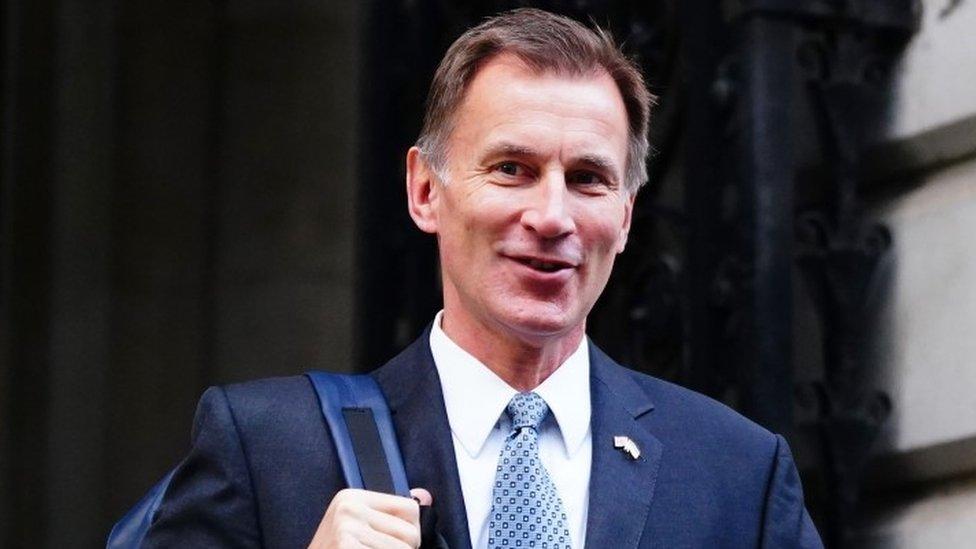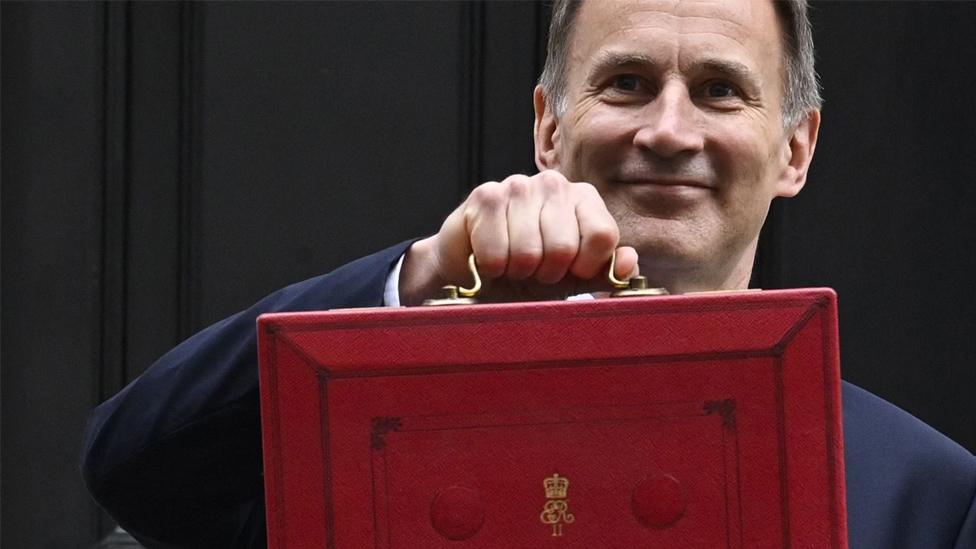Budget: Pensions to get boost as tax-free limit to rise
- Published

The total amount that workers can accumulate in their pension savings before paying extra tax is expected to be increased in Wednesday's Budget.
The final figure has not been confirmed, but people are expected to be able to save up to £1.8m over a lifetime, up from £1.07m currently, external.
The policy aims to stop people - particularly doctors - from reducing hours or retiring early owing to tax.
Critics say the move will only benefit a small fraction of the workforce.
UK economic growth has flatlined in recent months and the Bank of England expects the UK to enter a recession this year. About a quarter of people of working-age - around 10 million people - do not have jobs.
Persuading workers to work for longer is part of UK plans to boost growth, with Chancellor Jeremy Hunt's Wednesday announcement on tax and spending being dubbed the "Back to work Budget".
Mr Hunt is also expected to detail other measures to increase the workforce on Wednesday including:
Parents on universal credit to receive childcare funding upfront, instead of having to claim it back.
An increase in the UK-wide £646-a-month per child cap on support for universal credit claimants
Fitness-to-work tests for those with medical conditions.
Raising the amount that someone over 55 who has already accessed their private pension can put into their pension to £10,000 a year from £4,000
Consultancy LCP told the BBC the government's plans to raise pension tax allowances would benefit relatively few workers.
The number of people who have already breached the lifetime limit on pensions before paying tax and those who risk breaching it is 1.3 million, less than 4% per cent of the UK's current workforce, it says.
The lifetime allowance is the total amount of money you can build up in a workplace defined benefit pension scheme and savings in a defined contribution pension before you face a further tax charge. The tax is levied on the excess over the allowance. The state pension is not included in the calculation.
Anyone drawing their pension is still liable to income tax as normal.
Beneficiaries from an increase in the allowance will include those who have worked in the public sector for many years. There has been a particular focus on doctors and consultants - some of whom have retired early or reduced hours for pension tax reasons as the NHS has become increasingly stretched.
Dean Butler, managing director for customers at insurance firm Standard Life, said middle earners had been increasingly affected by the cap.
Any increase in the annual allowance, he said, would be of specific help to those with irregular earnings who were relying on making larger pension contributions later in their careers.
In the medical profession, some doctors and consultants have reduced their hours or retired early from the NHS because they were in danger of breaching the tax-free pensions lifetime allowance, and they calculated that continuing to work was counterproductive for their finances.
The annual tax-free pension allowance - which is also expected to increase from £40,000 to £60,000 each year - has been subject to much of the same debate.
Many industries are struggling to recruit workers, though job vacancies are falling. Earlier this year, Mr Hunt pledged to consider changes to encourage the over-50s who had taken early retirement during or after Covid to return to work, saying he "would look at the conditions necessary to make work worth your while".
Not everyone believes that boosting pension allowances is the best policy to meet this goal.
"High earners with big pension pots do benefit from inappropriately generous tax treatment of pensions, but there are much better ways of restricting this than these crude limits." said Carl Emmerson, from the Institute for Fiscal Studies, a leading independent think tank.
Related topics
- Published16 March 2023

- Published1 March 2024

- Published26 March

- Published11 March 2023

